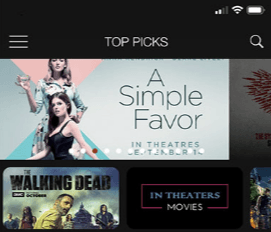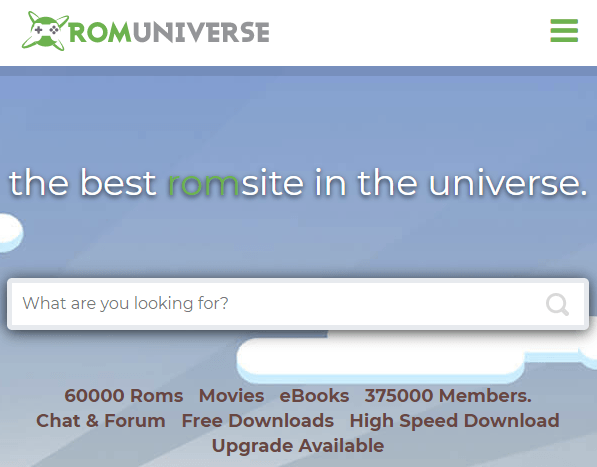Every single week, Internet users in the United States take to Reddit and other discussion forums seeking advice about copyright infringement notices.
Whether the claims against them are true is often hard to assess, but many speak of receiving notices from their ISP which state that a third-party has caught them torrenting something they shouldn’t – usually movies, TV shows, or music.
While any and all of them are able to speak directly to their ISP to find out what the notices are all about and what the consequences might be, many seem confused. Are they going to be sued, for example, or perhaps their Internet might get suspended or cut off completely?
Most advice dished out by fellow internet users is (and I’m paraphrasing), “Dumbass – use a VPN”, but while that comprehensively solves the problem, it doesn’t answer the big questions.
A common topic is how many notices a customer can receive from their ISP before things get serious. One might think this basic information would be easy to find but despite most major ISPs in the US stating that they don’t allow infringement and there could be consequences for receiving multiple complaints, more often than not their information pages aren’t specific.
So, in an effort to cut through all the jargon and put all the relevant information into one article, on August 27 we approached several of the major ISPs in the United States – Comcast, AT&T, Charter/Spectrum, Verizon, and CenturyLink – with a list of questions, detailed below;
- Your company forwards copyright complaints from rightsholders, based on their claims. How many complaints can a subscriber have made against their account before some action is taken by you, beyond simply forwarding the notice to the subscriber?
- What is the nature of that action, i.e requiring to confirm receipt of the notice, taking a copyright lesson, promising not to infringe again, etc?
- Once this stage has been completed, how many more complaints against an account will trigger any subsequent action, i.e a more serious warning, warning that an account could be suspended etc?
- At what point would a customer with multiple complaints against their account be considered a ‘repeat infringer’?
- At what point could an account holder expect a temporary account suspension? At this point, how would that suspension be lifted?
- At what point could an account holder expect a complete termination of his or her service?
- In respect of points 5 and 6, is the number of complaints a deciding factor or does a subscriber’s negative or positive responses and actions in respect of your efforts to prevent infringement also play a part?
- Are you able to confirm that accounts have been temporarily suspended for repeat infringement and if so, how many?
- Are you able to confirm that accounts have been permanently shut down for repeat infringement and if so, how many?
We told the ISPs exactly why we were asking these questions and indicated that a response within seven days would guarantee their inclusion in this article. We extended the deadline to two weeks and beyond but not a single company listed above responded to any of our questions.
In fact, none even acknowledged receipt of our initial email, despite one ISP requiring us to send emails to at least three people involved in their media communications team. It seems fairly clear this potato is simply too hot to pick up.
That being said, we thought we should press on with at least trying to help subscribers.
There are usually very few valid excuses for receiving multiple copyright infringement complaints. Some do exist, of course, but not knowing the precise mechanism for being dealt with under various ISPs’ ‘repeat infringer’ rulesets only makes matters worse.
What we can do here is give relevant snippets/quotes from each ISP’s website and link to the page(s) in question, with a comment here and there. In no particular order:
AT&T: In accordance with the DMCA and other applicable laws, AT&T maintains a policy that provides for the termination of IP Services, under appropriate circumstances, if Customers are found to be a repeat infringer and/or if Customers’ IP Services are used repeatedly for infringement (the ‘Repeat Infringer Policy’). AT&T may terminate IP Services at any time with or without notice to Customers.
AT&T has no obligation to investigate possible copyright infringements with respect to materials transmitted by Customer or any other users of the IP Services. However, AT&T will process valid notifications of claimed infringement under the DMCA, and continued receipt of infringement notifications for Customer’s account will be used as a factor in determining whether Customer is a repeat infringer.
TF note on AT&T: We can find no “Repeat Infringer Policy”
CenturyLink: Company respects the intellectual property rights of others and is committed to complying with U.S. copyright laws, including the Digital Millennium Copyright Act of 1998 (‘DMCA’). Company reserves the right to suspend or terminate, in appropriate circumstances, the service of users whose accounts are repeatedly implicated in allegations of copyright infringement involving the use of Company’s network.
TF note: We have no idea what constitutes “appropriate circumstances.”
Comcast/Xfinity: Any infringement of third party copyright rights violates the law. We reserve the right to treat any customer account for whom we receive multiple DMCA notifications from content owners as a repeat infringer.
We reserve the right to move a customer account to the next step of the policy upon receiving any number of DMCA notifications from content owners in a given month, or upon learning that the account holder is a repeat infringer.
You may receive an email alert to the preferred email address on your account or a letter to your home address. You may also receive an in-browser notification, a recorded message to your telephone number on file, a text message to your mobile telephone number on file, or another form of communication.
Triggering steps under this policy may result in the following: a persistent in-browser notification or other form of communication that requires you to log in to your account or call us; a temporary suspension of, or other interim measures applied to, your service; or the termination of your Xfinity Internet service as well as your other Xfinity services (other than Xfinity Mobile).
TF note on Comcast: The ‘repeat infringer’ policy is quite detailed and worth the long read.
Cox Communications: Cox encourages responsible internet use. Our internet use policy is consistent with the Digital Millennium Copyright Act and allows us to take steps when we receive notifications of claimed infringement.
Repeated notifications of claimed violations on your account could lead to Internet service suspension or termination.
If you continue to receive copyright infringement notifications on your account, Cox suspends your Internet service. In the Customer Portal, you may reactivate your Internet service up to two times.
If your account continues to receive copyright infringement notifications, your Internet service is terminated.
TF note on Cox: The repeat infringer policy is worth a read and is quite specific in parts, less so in others.
Spectrum/Charter: TF initial note: The company doesn’t appear to have a dedicated ‘repeat infringer’ policy outside of its published “copyright violation” advice. While this is both detailed and helpful in many respects, it doesn’t give specifics on alleged ‘repeat infringers’.
After noting that “Charter may suspend or disconnect your service as a result of repeat copyright violations,” users are sent to its Acceptable Use Policy page, which reads in part as follows:
Spectrum reserves the right to investigate violations of this AUP, including the gathering of information from the Subscriber or other Users involved and the complaining party, if any, and the examination of material on Spectrum’s servers and network.
Spectrum prefers to advise Users of AUP violations and any necessary corrective action but, if Spectrum, in its sole discretion, determines that a User has violated the AUP, Spectrum will take any responsive action that is deemed appropriate without prior notification. Such action includes but is not limited to: temporary suspension of service, reduction of service resources, and termination of service.
Verizon: Pursuant to Section 512 of the DMCA, it is Verizon’s policy to terminate the account of repeat copyright infringers in appropriate circumstances.
TF note: This appears to be the shortest ‘repeat infringer’ policy of all the ISPs and is a good example of why we decided to ask all of the companies for their precise steps, so we could offer a little more detail to their customers.
Sorry, we failed, but there’s probably a good reason for that.
Summary: With several ISPs up to their necks in lawsuits filed by the RIAA alleging that they haven’t done enough to deal with “repeat infringers”, it’s perhaps no surprise that the companies ignored our requests for information.
That being said, it’s of interest that several appear to be acting in a particularly vague manner – perhaps they’re already worrying that they’ll be next on the music industry’s list.
In the meantime and in most cases, users will remain largely in the dark unless they do a lot of reading and research. And even that might not be enough.
Source: TF, for the latest info on copyright, file-sharing, torrent sites and more. We also have VPN reviews, discounts, offers and coupons.









